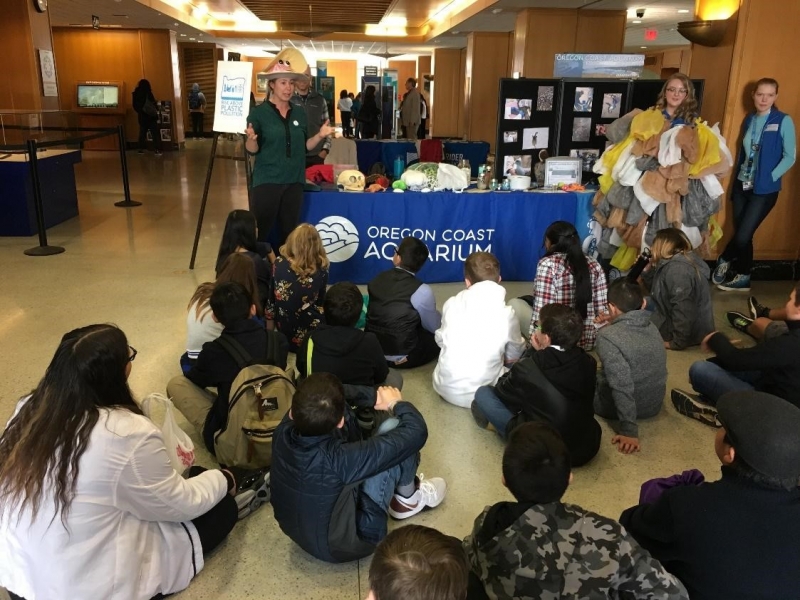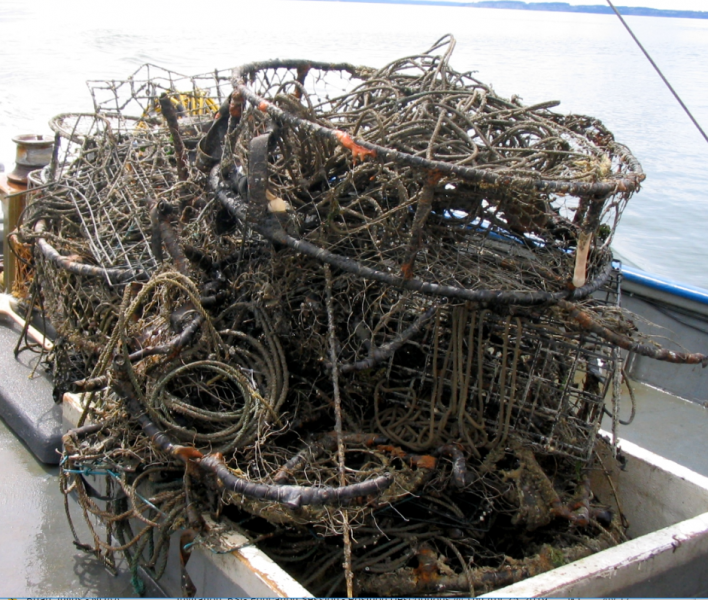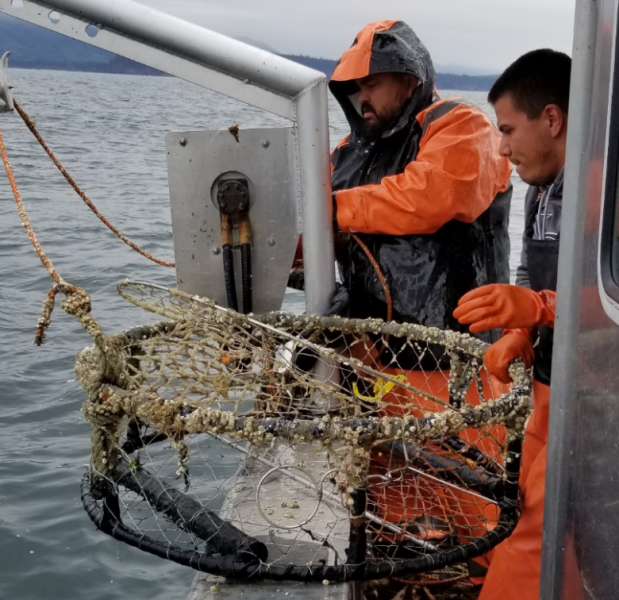To visitors of the Pacific Northwest, beaches along the Pacific Ocean and the Puget Sound seem stunningly beautiful and often pristine. A closer look reveals that these beaches, like beaches the world over, are impacted by marine debris that harms the ecosystem, creates navigational hazards, and negatively affects the economy.
Marine debris found in the Pacific Northwest is as versatile as the economies that produce it. A wide variety of plastic consumer debris, commercial packaging, and even balloons litter the beaches, though much of the debris arriving to the sparsely populated Pacific Northwest coast comes from elsewhere. Derelict fishing gear, another type of marine debris, is less visible, yet derelict crab pots, shrimp traps, and lost nets and lines entangle marine wildlife, harm the sea floor upon which they rest, pose a risk to navigation, and even threaten human safety.

The Marine Debris Program (MDP) is currently supporting three new projects in Oregon and Washington. In Oregon, Surfrider Foundation, supported in partnership with SOLVE, Oregon Shores, Oregon Parks and Recreation Department, and the Oregon Coast Aquarium, is engaged in a broad campaign to Rise Above Plastic Pollution. Working with the Oregon public, businesses, and legislators, as well as hundreds of students, the project aims to increase awareness of plastic pollution, and bring about behavior change. Using social media and outreach events the project encourages people and businesses to avoid using single-use items, and reduce plastic pollution. On March 14th, Surfrider hosted Rise Above Plastic Pollution Day at the Oregon Capitol, and has designated May 2019 as Oregon’s Rise Above Plastic Pollution month.

In Washington, the MDP is supporting two projects which target derelict fishing gear. The Northwest Straits Foundation, leveraging its extensive experience in prevention and removal of derelict fishing gear, is conducting surveys and the removal of recreational crab pots in Port Townsend Bay in the Puget Sound, and Dungeness Bay in the Strait of Juan de Fuca. Once detected, the pots will be removed by divers. In between removal efforts, an extensive outreach campaign, targeting recreation crab pot fishers, will be conducted in collaboration with Washington Department of Fish and Wildlife, and Clallam County and Jefferson County Marine Resource Committees to educate about the effective use of crab pots, and reducing the risk of pot loss.

At the northwest corner of Washington State, the Makah Tribe has begun a project to locate and remove derelict crab pots using aerial surveys. Once located, a vessel is used to remove the pots or cut the float lines from those buried too deeply in the sediments to be removed. The project will also work closely with Tribal fishers to develop a program to prevent the further loss of crab pots, and help with reporting and removal.
Marine debris in all its forms is a growing global and regional problem, and addressing it effectively requires communication and collaboration. Fortunately, in both Oregon and Washington the marine debris communities – agencies, tribes, non-governmental organizations, academia, industry, and many volunteers, are dedicated to the prevention and removal of marine debris. Together they have produced marine debris action plans for Oregon, and Washington, which list on-going and future prioritized actions, contribute to better communication among partners, and help to create effective marine debris reduction efforts in the states.

This is great! Any marine debris removal or educational efforts in the San Juan Islands? I'll be living there this summer to work for a marine mammal stranding network, and I'd love to volunteer somehow. Thank you in advance!